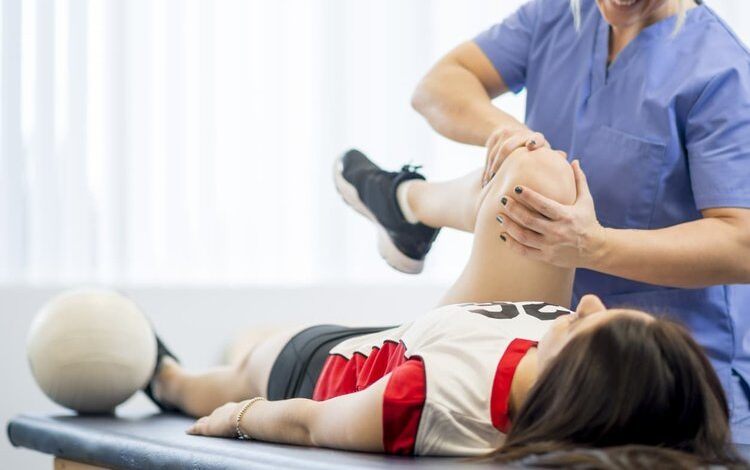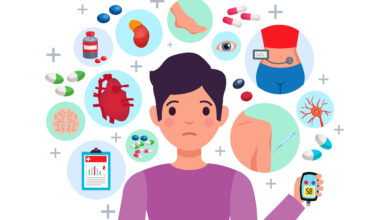How Physical Therapy Can Aid in Recovery from Sports-Related Concussions

Sports-related concussions are a growing concern among athletes, coaches, and healthcare professionals alike. As awareness about the risks of head injuries increases, so does the need for effective recovery strategies. One such strategy that has proven beneficial is physical therapy. This article explores how physical therapy can aid in the recovery from sports-related concussions and why it is a vital component of a comprehensive rehabilitation program.
Understanding Sports-Related Concussions
A concussion is a type of traumatic brain injury (TBI) caused by a blow to the head or a violent shaking of the head and body. In sports, concussions can occur during contact activities like football, hockey, and soccer, as well as non-contact sports such as cycling or skiing. Symptoms of a concussion can range from mild to severe and may include headaches, dizziness, confusion, nausea, and sensitivity to light and noise.
The Role of Physical Therapy in Concussion Recovery
Immediate Post-Concussion Management
Following a concussion, the primary focus is on rest and monitoring symptoms. However, once the acute symptoms have started to subside, physical therapy can play a crucial role in the recovery process. A physical therapist can assess the severity of the concussion and tailor a rehabilitation program to address specific symptoms and functional impairments.
Vestibular Rehabilitation
One common issue following a concussion is vestibular dysfunction, which affects balance and spatial orientation. Vestibular rehabilitation therapy (VRT) is a specialized form of physical therapy designed to help patients regain their balance and reduce dizziness. This type of therapy involves exercises that focus on improving gaze stability, balance, and coordination. For athletes experiencing persistent dizziness or balance issues, vestibular rehabilitation can be a game-changer in returning to their sport safely.
Cervicogenic Issues
Concussions can also lead to cervicogenic headaches, which are headaches originating from issues in the neck. Physical therapy can address these issues through targeted exercises and manual therapy techniques aimed at relieving neck pain and improving range of motion. By addressing cervicogenic headaches, physical therapy helps alleviate one of the common sources of discomfort following a concussion.
Cognitive and Physical Rehabilitation
Another critical aspect of concussion recovery is addressing cognitive and physical impairments. Physical therapists work with patients to gradually reintroduce physical activities in a controlled manner. This gradual return-to-play protocol helps ensure that athletes do not return to their sport too soon, which could lead to further injury. Additionally, physical therapy can incorporate cognitive exercises that improve memory, concentration, and overall cognitive function.
Personalized Rehabilitation Programs
Each concussion is unique, and so is each recovery process. Physical therapy offers personalized rehabilitation programs tailored to the individual’s needs. A physical therapist will conduct a thorough evaluation, taking into account the specific symptoms and challenges the patient is facing. Based on this assessment, the therapist will develop a customized treatment plan that may include exercises, manual therapy, and other interventions.
For those in need of specialized care, seeking out resources such as physical therapy Wilkes Barre pa can provide valuable support. These services can help guide athletes through the recovery process and ensure a safe return to their activities.
Benefits of Physical Therapy in Concussion Recovery
Improved Function and Quality of Life
One of the primary benefits of physical therapy is the improvement in overall function and quality of life. By addressing specific symptoms and impairments, physical therapy helps individuals regain their pre-concussion abilities and return to their daily routines. This comprehensive approach ensures that patients not only recover physically but also feel confident and comfortable in their return to activities.
Prevention of Long-Term Complications
Effective physical therapy can also help prevent long-term complications associated with concussions. Persistent symptoms such as chronic headaches, dizziness, and balance issues can significantly impact an individual’s life. Through targeted interventions and ongoing support, physical therapy helps mitigate these risks and promotes long-term recovery.
Enhanced Safety in Return to Sports
Athletes eager to return to their sport can benefit greatly from physical therapy. The gradual return-to-play protocols ensure that athletes are not rushed back into high-intensity activities before they are fully recovered. This careful approach helps reduce the risk of re-injury and ensures that athletes can perform at their best without compromising their health.
Read also: 7 Lifestyle Changes to Make for a Healthier Smile
Conclusion
In conclusion, physical therapy plays a vital role in the recovery process from sports-related concussions. From addressing vestibular and cervicogenic issues to providing personalized rehabilitation programs, physical therapists offer invaluable support to individuals recovering from these injuries. For those seeking specialized care, resources such as physical therapy Wilkes Barre pa can provide expert guidance and aid in a successful recovery. By incorporating physical therapy into a comprehensive concussion management plan, individuals can achieve optimal recovery and return to their activities with confidence.



